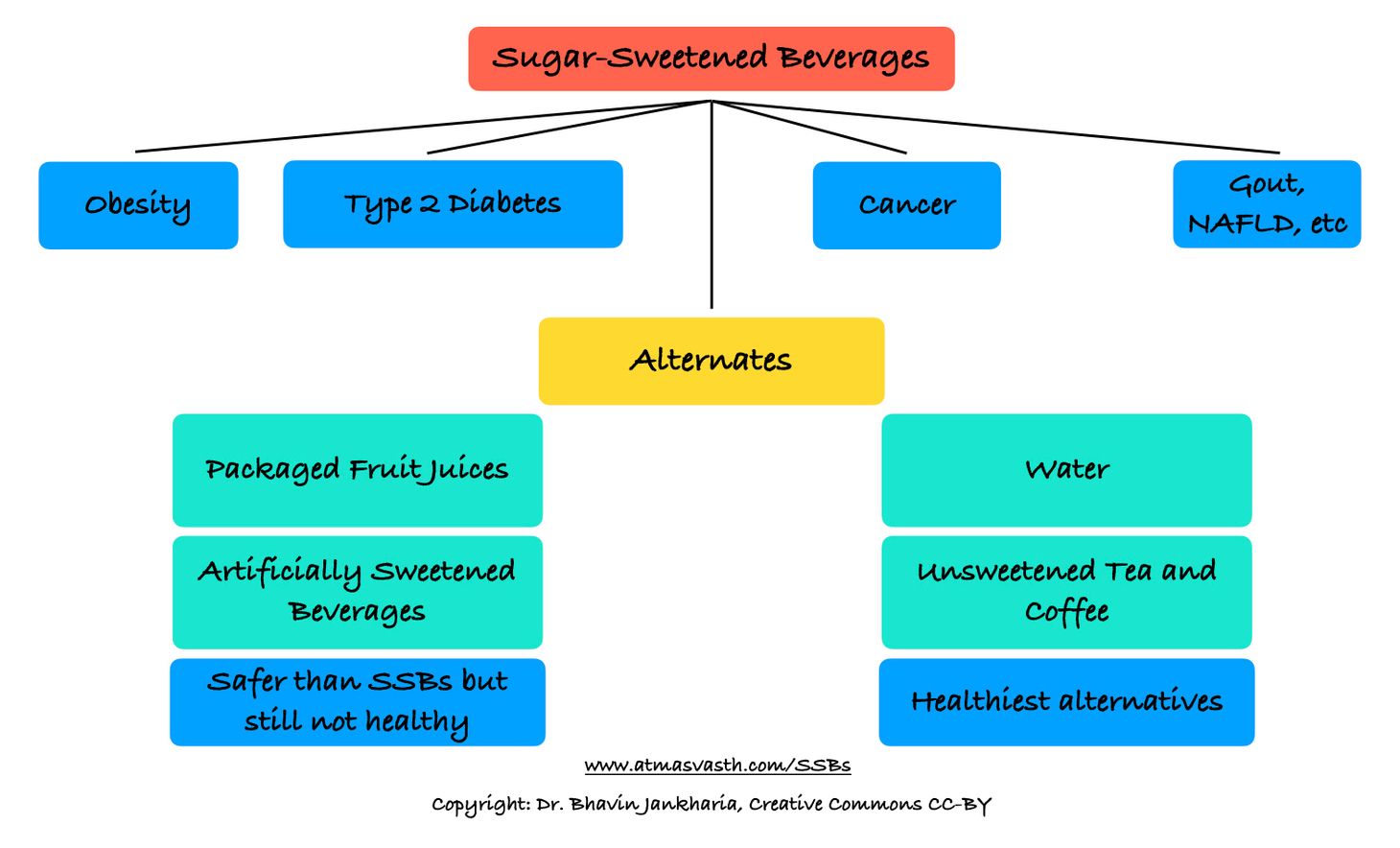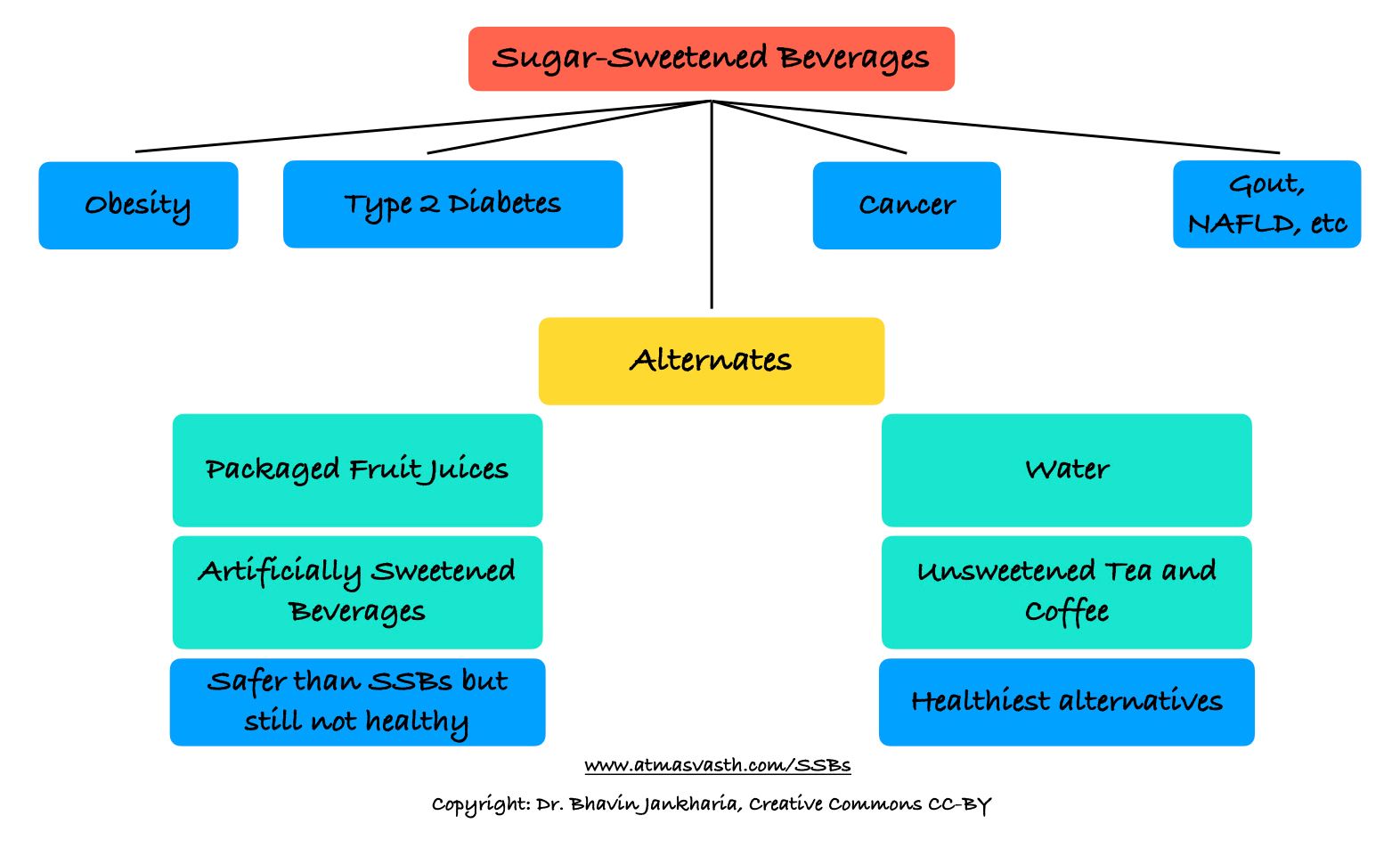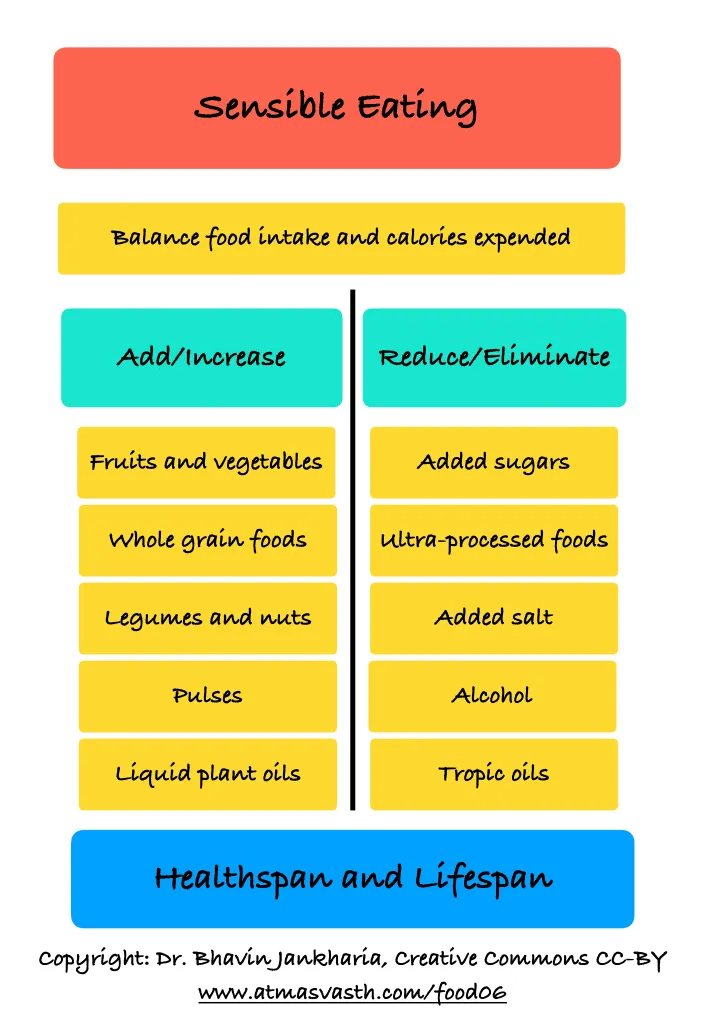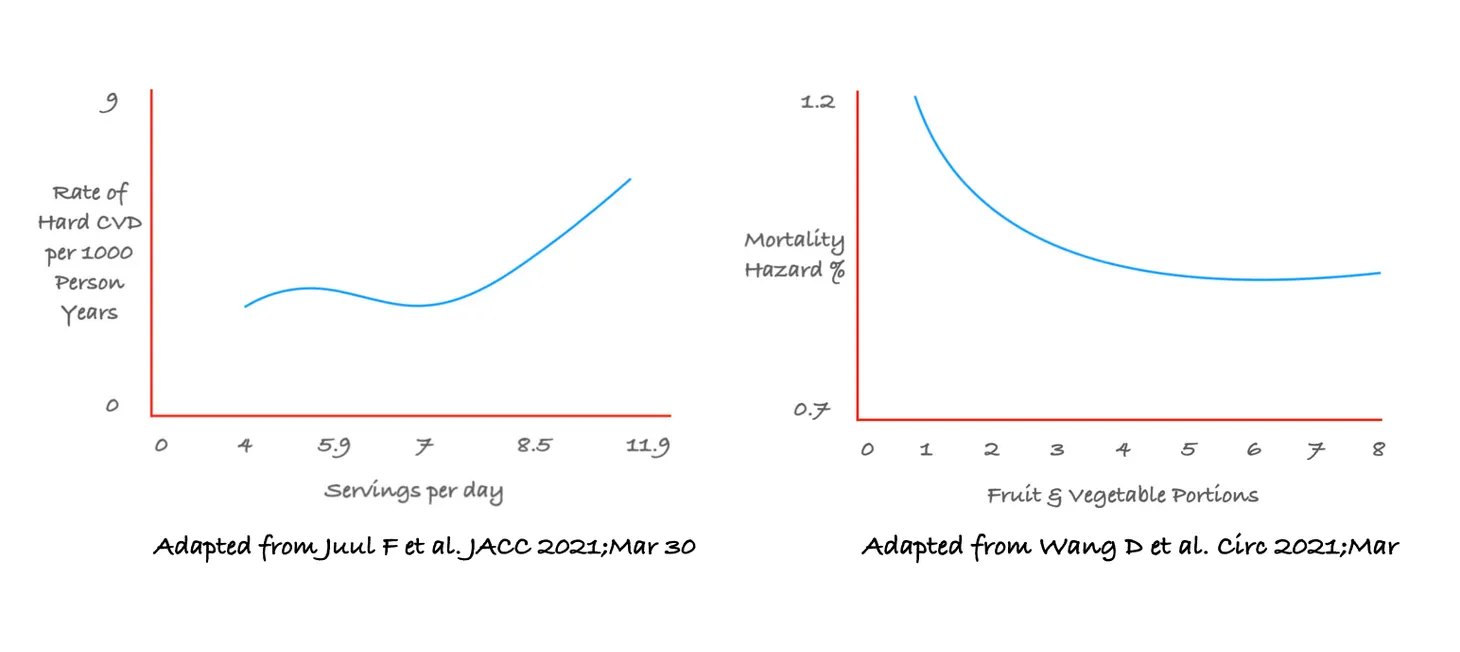Packaged Fruit Juices are Not as Healthy as You May Think
Colas, fruit juices and all sweetened beverages are in the long term harmful

You can listen to the audio/podcast hosted on Soundcloud by clicking the Play button below within the browser itself. You can click here to access directly from your email.
A year ago, I wrote about ultra-processed foods or UPFs, whose consumption is associated with increased risk of cardiovascular disease and mortality. UPFs contain various additives with generous dollops of salt, sugar and fat, which make them extremely tasty, often addictive and difficult to resist (“you can’t stop with one” was an ad campaign once for a brand of potato chips). Consuming UPFs once in a while is fine, but if they constitute a significant part of your daily diet, then they are detrimental to health.
Sugar-sweetened beverages or SSBs are similar to UPFs. Though there is no universal consensus on the definition of SSBs, all drinks that contain caloric sweeteners such as sucrose, high-fructose corn syrup or fruit juice concentrates come under this category. This includes all forms of colas and similar fizzy drinks, and most packaged fruit juices. Most people are aware that regular consumption of colas is harmful, but many are unaware that fruit juices that come in packages are equally harmful, whether they contain pulp or advertise themselves as real…check the contents on the package and you will realize the problem. The only healthy fruit juice is the one squeezed at home or in front of you at a stall with no added sugar and even then, a whole fruit is better than fruit juice.
A recent review by Vasanti Malik and Frank Hu in Nature Reviews: Endocrinology [1] puts together all the research till date on this subject. SSBs are not only associated with increased weight gain and obesity, but also chronic disease through additional non-obesity related pathways. These include type 2 diabetes mellitus (T2DM), cardiovascular disease, non-alcoholic fatty liver disease (NAFLD), which in turn can lead to cirrhosis, as well as hyperuricemia and gout and perhaps cancer with increased mortality.
So what about sugar substitutes, also called artificially sweetened beverages (ASBs)? The evidence is conflicting. In the short term, replacing SSBs with ASBs is likely a good strategy, similar to replacing cigarette smoking with an electronic nicotine delivery device or a nicotine patch. In the long term, these too are harmful. Just 2-3 days after reading Malik’s paper, I chanced upon a recent study on artificial sweeteners headed by Charlotte Debras [2], which found an increased cancer risk with aspartame and acesulfame-K. You can Google for their popular brand names, which are increasingly used by those who want to avoid sugar in their tea and coffee, but still want their beverages sweet. Incidentally, in 2019, the same group published a paper suggesting a causal link between SSBs, including fruit juices and various types of cancer [3].

Fruit juices can also be a short term substitute, but in the long-term are likely harmful, given the quick absorption of sugar, as against the delayed absorption that occurs with eating whole fruits…there may be other differences as well. Water and non-sweetened tea and coffee are probably the best substitutes for SSBs, whenever we crave for a drink. In my house, we substituted colas for sodas / fizzy water some years ago - the cola craving can perhaps be controlled by drinking a sip or two of soda and then following up with regular water. The only time now that we do drink colas is with pizzas - that association is difficult to let go, so the next best solution has been to reduce the frequency of pizza dinners to just once a month or so.
In short, SSBs are detrimental to health. Most importantly, these include almost all packaged fruit juices. In our healthful ageing quest, the atmasvasth way, it is best to restrict SSBs to special occasions if at all, and stick to water, sparkling or regular and non-sweetened tea and coffee.
Footnotes
1. Malik VS, Hu FB. The role of sugar-sweetened beverages in the global epidemics of obesity and chronic diseases. Nat Rev Endocrinol. 2022 Apr;18(4):205-218.
2. Debras C, et al. Artificial sweeteners and cancer risk: Results from the NutriNet-Santé population-based cohort study. PLoS Med. 2022 Mar 24;19(3):e1003950.
3. Chazelas E et al. Sugary drink consumption and risk of cancer: results from NutriNet-Santé prospective cohort. BMJ. 2019 Jul 10;366:l2408.
Atmasvasth Newsletter
Join the newsletter to receive the latest updates in your inbox.


